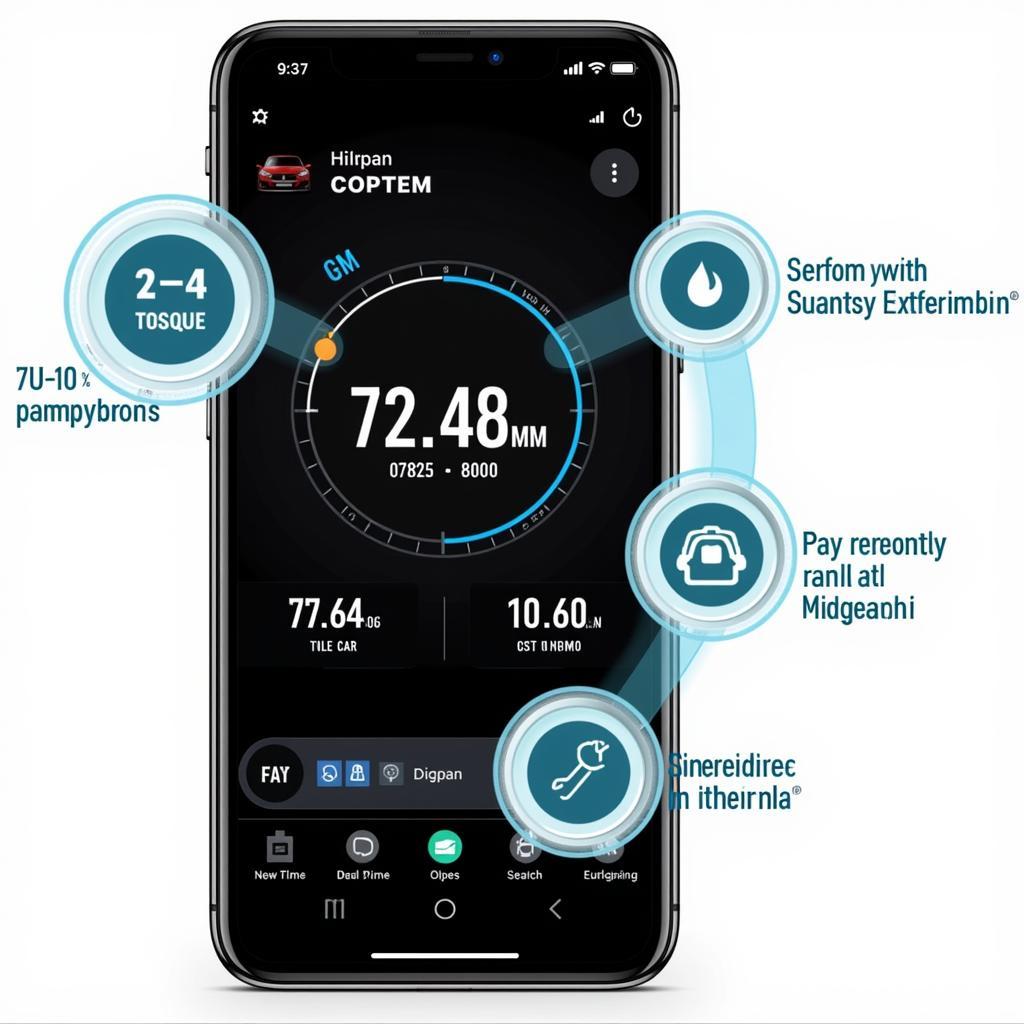Finding the best OBD2 scanner for all cars can feel overwhelming with so many options available. This article will guide you through the process, helping you understand the different types of OBD2 scanners and what features to look for, whether you’re a car owner, mechanic, or automotive technician. Choosing the right scanner can save you time and money in the long run, empowering you to diagnose and potentially fix car troubles yourself.
Are you tired of costly mechanic visits for simple car problems? A reliable OBD2 scanner can help you take control of your vehicle’s maintenance. This guide will help you find the best obdii car diagnostic scanner that fits your needs and budget.
Understanding OBD2 Scanners
OBD2, or On-Board Diagnostics II, is a standardized system that allows you to access your car’s diagnostic information. An OBD2 scanner is a tool that plugs into your car’s OBD2 port, typically located under the dashboard on the driver’s side. It reads diagnostic trouble codes (DTCs) that indicate potential issues within your car’s systems, from the engine and transmission to the emissions system and airbags.
Types of OBD2 Scanners
There are several types of OBD2 scanners, each with its own set of features and price points:
- Basic Code Readers: These inexpensive scanners read and clear basic DTCs. They are suitable for car owners who want to understand the reason for a check engine light.
- Mid-Range Scanners: These offer more advanced features, such as live data streaming, allowing you to monitor various sensor readings in real-time. They are a good choice for DIY enthusiasts and small repair shops.
- Professional-Grade Scanners: These high-end scanners offer extensive functionalities, including bi-directional control, allowing you to test components and perform system resets. They are typically used by professional mechanics and dealerships.
Key Features to Look For
When choosing an OBD2 scanner, consider the following factors:
- Vehicle Compatibility: Ensure the scanner is compatible with your car’s make, model, and year, especially for older or European vehicles. You might need an obd scanner for european cars for such vehicles.
- DTC Definitions: Look for a scanner that provides clear and concise definitions of DTCs, making it easier to understand the problem.
- Live Data Streaming: This feature allows you to monitor real-time sensor data, helping you identify intermittent issues.
- Bi-Directional Control: This advanced feature allows you to test components and perform system resets, but it’s usually found in professional-grade scanners.
- Software Updates: Regular software updates ensure the scanner stays compatible with the latest vehicle models and diagnostic protocols.
- User Interface: A user-friendly interface makes the scanner easy to navigate and operate.
What if I have an iPhone?
If you prefer using your iPhone for diagnostics, there are many car code scanner iphone options available that connect wirelessly to your phone.
Choosing the Right OBD2 Scanner
The best OBD2 scanner for you depends on your specific needs and budget. A cheap car obd scanner can be sufficient for reading and clearing basic codes, while a professional mechanic might require a high-end scanner with advanced functionalities.
How much should I spend on an OBD2 scanner?
Prices can range from under $20 for a basic code reader to several hundred dollars for a professional-grade scanner. Consider your needs and how often you plan to use the scanner.
“A good OBD2 scanner is an investment that can save you a lot of money in the long run,” says John Smith, a certified automotive technician with over 20 years of experience. “It allows you to diagnose problems early on and potentially fix them yourself, avoiding expensive trips to the mechanic.”
Troubleshooting Common OBD2 Scanner Issues
Occasionally, you might encounter issues with your OBD2 scanner. Here are some common problems and solutions:
- Scanner Not Connecting: Check the OBD2 port and cable connections. Ensure the car’s ignition is turned on.
- No Codes Found: The check engine light might have been reset recently, or the issue might be intermittent.
- Incorrect Codes: Make sure the scanner is compatible with your vehicle. Try updating the scanner’s software.
“Don’t be afraid to experiment with different scanners to find one that suits your needs,” advises Maria Garcia, an experienced automotive engineer. “The right scanner can empower you to take control of your vehicle’s maintenance.”
Conclusion
Choosing the best OBD2 scanner for all cars involves understanding your needs and considering factors like vehicle compatibility, features, and budget. A gagging scanner for car codes will provide valuable insights into your vehicle’s health, allowing you to diagnose problems and make informed decisions about repairs. Whether you’re a car owner, a DIY enthusiast, or a professional mechanic, the right OBD2 scanner is an essential tool for maintaining and troubleshooting your vehicles.
For personalized assistance in selecting the best OBD2 scanner, please contact ScanToolUS at +1 (641) 206-8880 or visit our office at 1615 S Laramie Ave, Cicero, IL 60804, USA. We’re here to help you find the perfect scanner for your needs!

